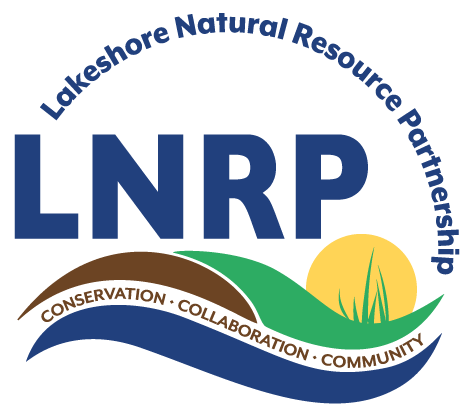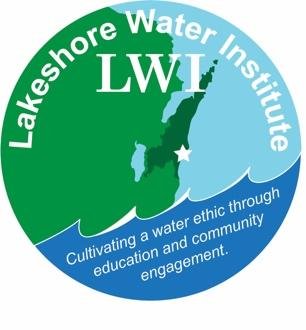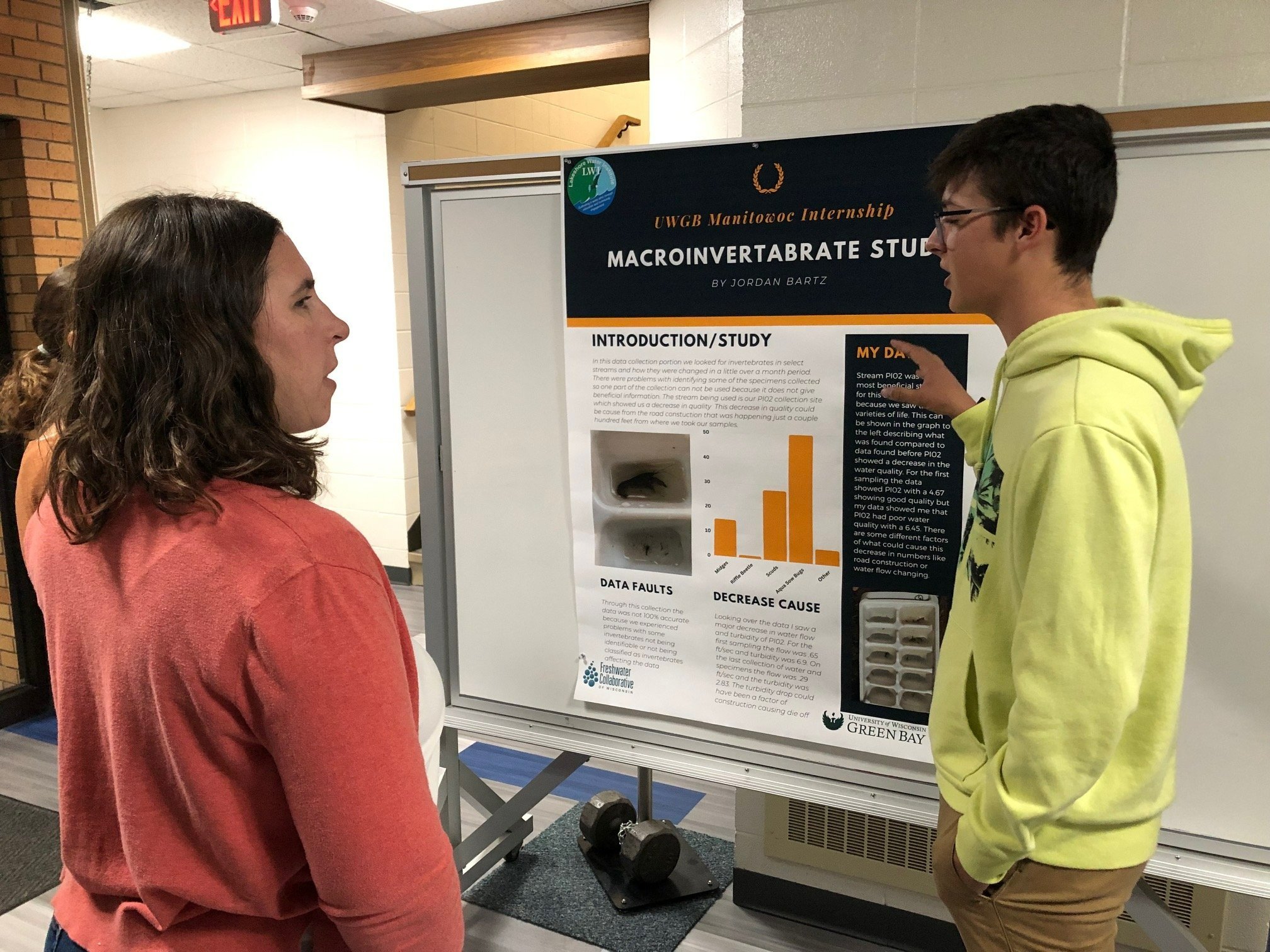2022 Lakeshore Water Summit a Great Success
On October 12th, at the University of Wisconsin Green Bay - Manitowoc Campus, members of our lakeshore communities attended the 10th annual Lakeshore Water Summit. Open to the public, these summits highlight the important work done by undergraduate students at UWGB-Manitowoc Campus on our region’s freshwater resources.
Community leaders, including Brian Kraemer, Russ Tooley, Jim Kettler and Rolf Johnson were in attendance along with members of the general public and the families of the participating UWGB students. Prior to the main program, local High School students also shared their science-based work looking at water quality issues in our County.
Led by their professors, Dr. Rick Hein and Dr. Rebecca Abler, students conducted hands-on research and field work to add to our growing database of water quality information for Manitowoc County Rivers and streams.
In 2022 the four watersheds studied were Centerville Creek, Pine Creek, Calvin Creek and the Little Manitowoc River. A total of 25 locations were visited every Monday (and again after a half-inch or more rain) from June through August. Analysis included testing for e-coli, phosphorus and nitrogen levels, and six additional water quality parameters.
Monitoring Water Quality
It is not always easy to ascertain the health of a river simply by looking at it. Short of noting “bad smells,” dead fish or obvious signs of pollution (oily slicks, garbage floating on the surface, excessive algal blooms and/or dead vegetation along the shore), actually collecting and testing water samples is key to understanding the health of our waterways. This testing has to occur on a regular schedule in order to provide scientists with meaningful information and a way to ascertain short and long-term trends in each body of water. For more information on this important work, we encourage you to visit our website.
The event wrapped up with a panel discussion and Q&A about the regional environmental and conservation efforts, with panelists representing NOAA’s new Wisconsin Shipwreck Coast National Marine Sanctuary, The National Estuarine Research Reserve System, The UW Freshwater Collaborative and The Manitowoc County Dairy Educator.
Teaching Tomorrows Scientists
Beyond the acquisition of important data – data that is helping to inform management decisions by local units of government and private landowners, including farmers – this work provides an opportunity to both teach and inspire our next generation of scientists.
These highly-motivated students not only shared their experiences in the field and in the lab, along with the technical results of their studies, they also shared their enthusiasm for pursuing science as a career.
The research they engaged in also creates a wonderful opportunity to have students work in teams as they learn about the interdisciplinary approaches required to get information that policy-makers and the general public can use. Of course, solving complex problems demands accurate and understandable information to multiple stakeholders.
The success of our Annual Water Summit illustrates how students can contribute to the public understanding of our critical freshwater resources while also inspiring the future leaders of our communities.
The Big Picture
Water is life. And we take great pride in being members of a Lakeshore Community, for good reason. The Lake – and the rivers and streams that feed it – define who we are. The robust agricultural efforts of our region’s family farms are also defined and impacted by our proximity to the Lake. In the near future, these freshwater resources will only become more important as other parts of our country deal with the increasing scarcity of this critical natural resource. Through the work of the University and its nonprofit partners like LNRP and The Friends of Hika Bay, we can have confidence that our freshwater resources will be here for future generations of people and wildlife. We encourage you to get involved.
Related Links (Winter 2023 Newsletter):
Twenty Years… it’s kind of a big deal
Climate Change Coalition of Door County Welcomes Jeff Lutsey as Next Executive Director
2022 Lakeshore Water Summit a Great Success
Town of Wilson Utilizes ROOTS Funding
LNRP Wraps Up Climate Adaptation Fund Efforts
LNRP Helps Lead Better Water Management at the Sheboygan Marsh
Lutsey Named Head of Climate Change Coalition - Peninsula Pulse
Lutsey Named New Climate Change Coalition Executive Director - Door County Daily News







